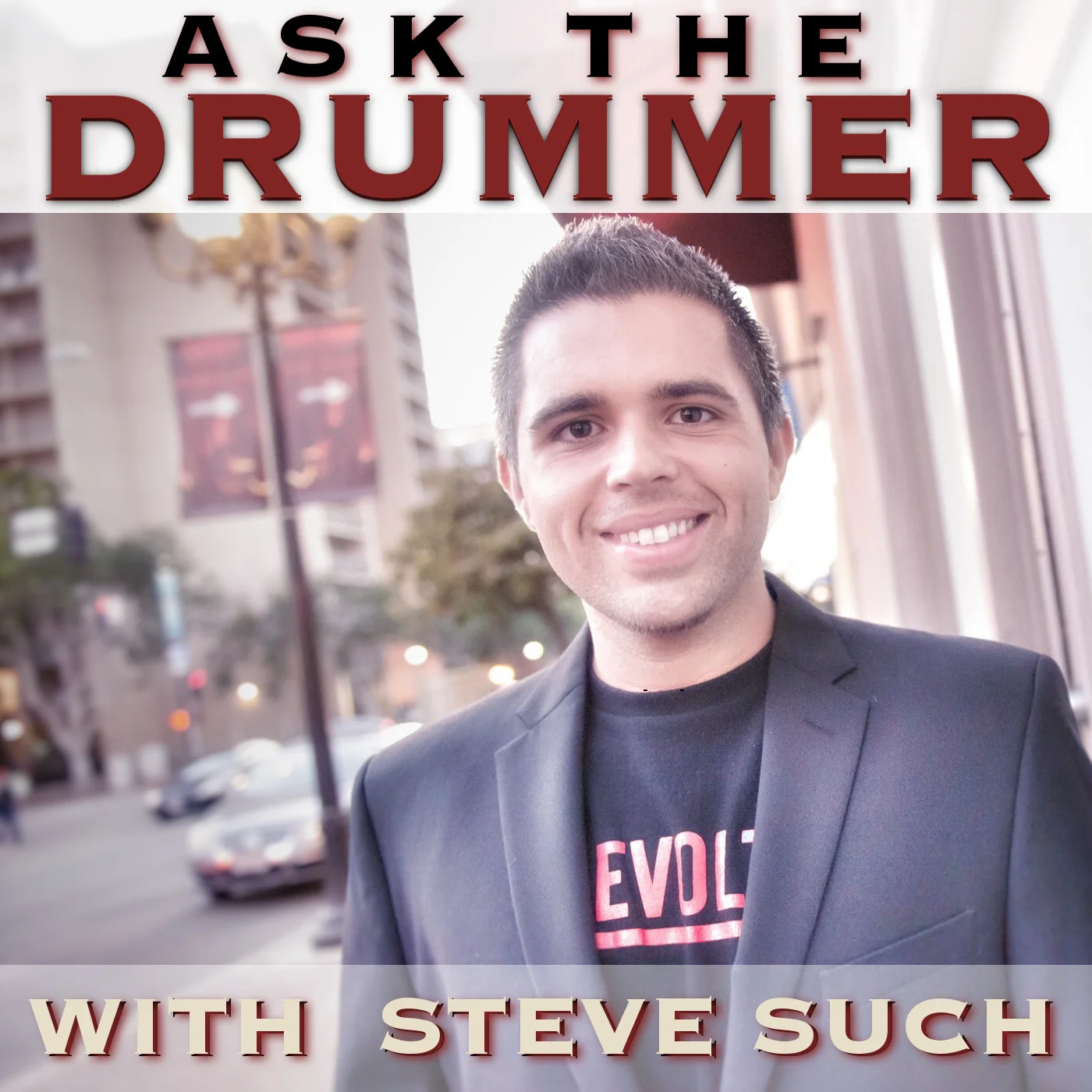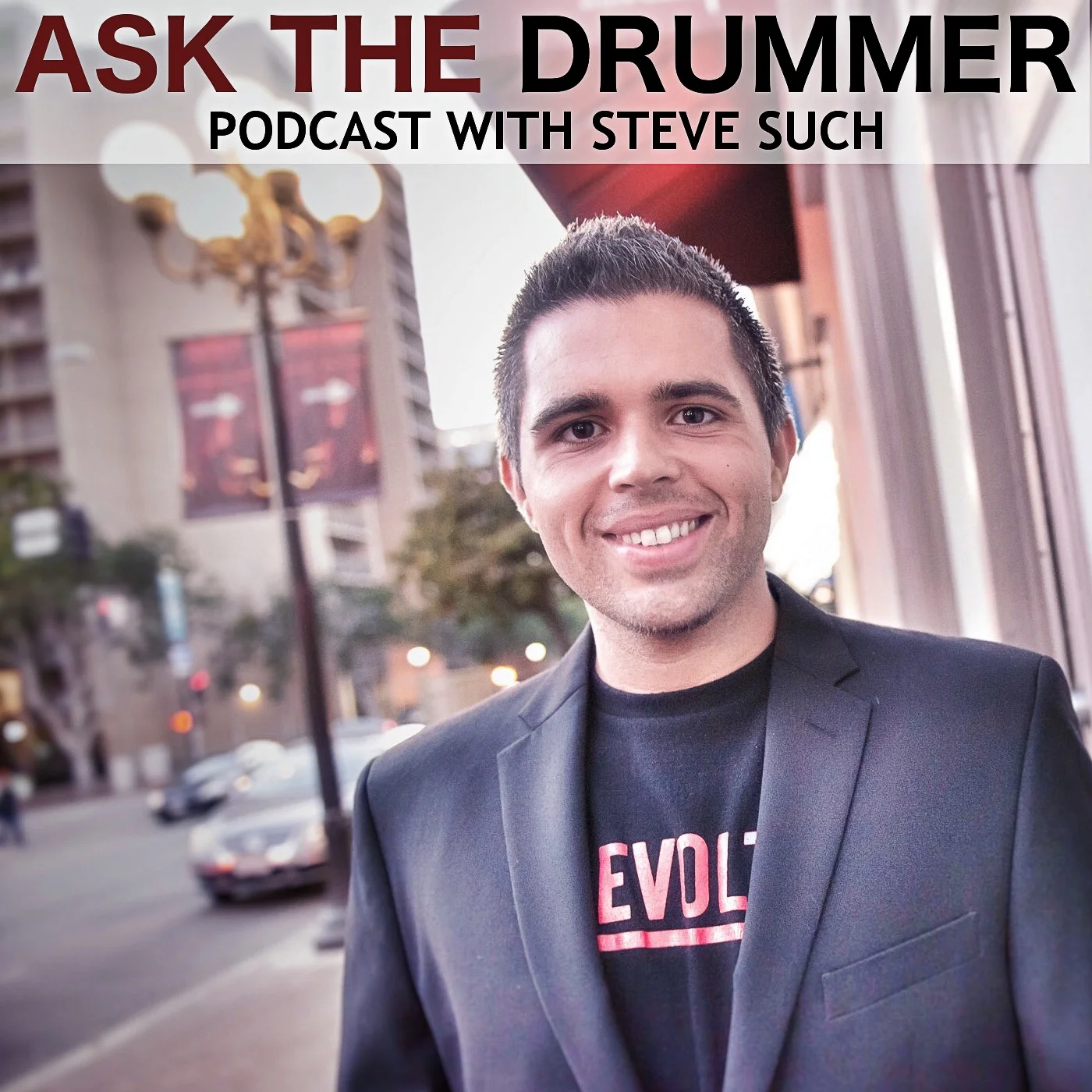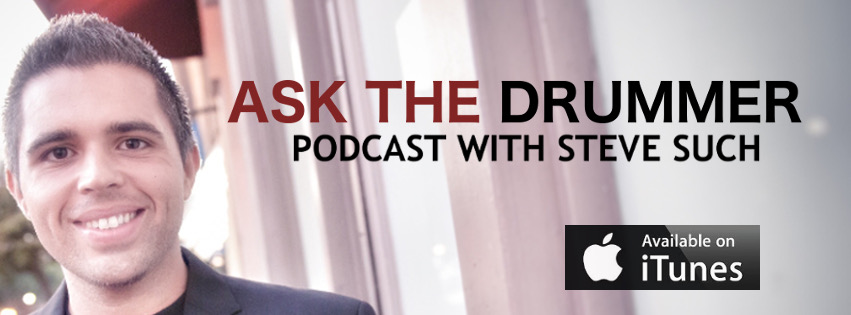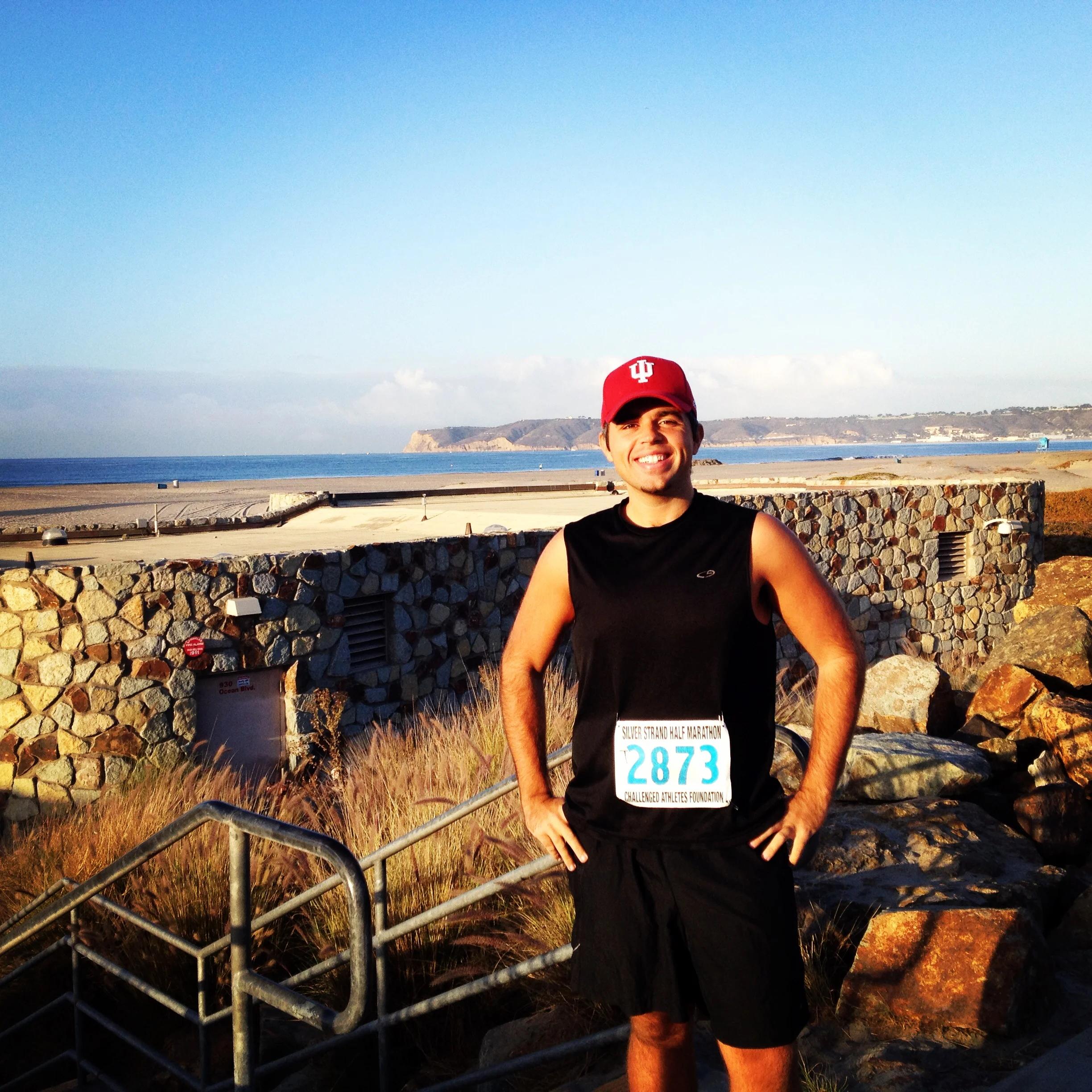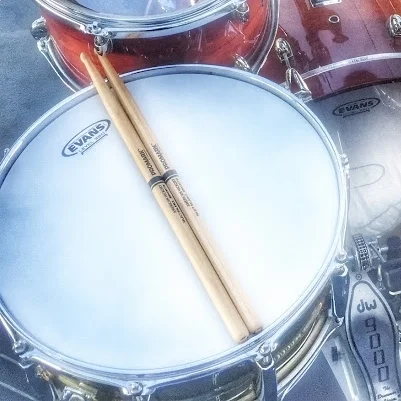“When life hands you lemons, make dilemna-nade” - Ryan Knudsen
PART ONE: THIS REALLY SUCKS
Yep. Coronavirus sucks….
In the span of a few weeks, the entire music industry has lost nearly all of its gigs, tours, and sources of income… myself included.
We’re all unsure of how we’re going to pay the bills, and we don’t see a clear path forward…
The world feels like a pretty scary place right now...
==
PART TWO: THIS IS A GIFT
Ok, now that I got that out of the way... you MUST get up, stop feeling sorry for yourself, and take advantage of this moment, because, while the rest of the world is losing its mind, we are given a rare gift.
Yes, I’m serious.
The reality is, you can choose between two options right now:
OPTION #1: Watch the news and endlessly scroll through your Facebook feed. Continue to be sad, angry, and afraid. Feel bad about yourself and your situation. Wait for things to magically get better.
OPTION #2: Take action. Be a badass. Find a way to turn your new reality into a GIFT!
I know, it’s tough. I’m right there with you. But, hear me out.
Remember all of those times you said “If only I had more time, I’d be able to accomplish X…?"
Well, guess what? Now there’s no excuse. You’ve just been GIVEN that time. And a lot of it.
Even though you (and I) may have lost our gigs (and income) for the foreseeable future; most of you have now gained the gift of life's most valuable asset, TIME.
You now have more time to REFLECT.
You now have more time to PREPARE.
You now have more time to EXPERIMENT.
You now have more time to INNOVATE.
You now have more time to GROW.
==
PART THREE: THE WORLD IS ENDING… AND IT’S ALL YOUR FAULT?
In moments like these, the practice of stoicism becomes a valuable tool. One of the key aspects of acting stoic is the ability to focus only on the things that are in your control, and ignoring the rest. According to the stoics, the rest is irrelevant. Blaming the world does not move the needle forward.
So, now is the time for you to answer some very difficult questions:
-Before the pandemic, have you been making the right decisions (musically, financially, etc.)?
-How could you have personally prepared better for the situation you find yourself in right now?
-What is in your control RIGHT NOW?
If you’re feeling stuck, here are a few things that ARE in your control. Do them now, and hurry... your schedule will be filling back up soon!
STEP #1: Completely overhaul your finances
Cut down your expenses greatly. What is absolutely essential right now? Cut the rest. Re-design your lifestyle for efficiency.
If you have any sort of debt, read Dave Ramsey’s “Total Money Makeover” immediately.
If you’re debt-free and/or worried the stock market, read Tony Robbin’s “Unshakeable."
Financial knowledge is not only smart, it's lucrative, especially in a time like this. Learn about compound interest, the stock market, taxes, and budgeting. Consider this a crash-course in finance and economics. Watch Ray Dalio’s explanation of the economy. Be a numbers nerd. Be that guy. It’s okay.
**If you decide to ignore the above, at least do this one** - Place a solid emergency fund in an online savings account so you’re ready for [insert the next global disaster here]. Remember: It’s not a matter of IF, it’s a matter of WHEN the next crisis happens. This is not being negative, it’s being realistic!
STEP #2: Re-Evaulate Your "Side-Hustles”
Besides live performing/teaching, what work can you do remotely? Instead of hoping for money to fall out of the sky, what seeds can you plant now so that you can reap the rewards in the future?
What other talents do you possess (in the music industry or not) that you can offer to the world right now? Explore/test them.
How can you diversity your income streams so that you no longer need to rely solely on gigs for income? How can you use the current situation to re-design your lifestyle for the better?
What unique skills can you, and only you, offer to the world? 10x your efforts in this domain. The world will be better for it, regardless of the financial outcome.
STEP #3: Re-Evaluate Your Goals
This one is fun: What are the things you’ve always wanted to be able to do / experience / create but never had the time?
Grab a piece of paper (or the notes app on your phone) and set a timer for 5 minutes.
Hurry! Write down EVERY. SINGLE. THING. you can think of related to your music, life, and/or career. This is a completely non-judgmental list that only you will see, so no item is too silly to write. It will feel good to get these ideas out of your head.
Aim to fill up the page completely. Write as many answers as possible. Go nuts. Always wanted to play chromatic scales at 976BPM? Neat. Want to become the world’s first professional YouTube air-drummer? Add it to the list, champ. I believe in you.
Next, eliminate 80% of your least favorite answers (Example: If you have 100 answers, scratch out your least favorite 80)
You now have a solid list of goals. Take a look at your list and CIRCLE THE TOP 3 ITEMS that stick out to you most. These three goals are now your new priority above all else.
Set another 5 minute timer. Write down, in complete detail, how you will achieve each of the 3 goals (read my tips for goal-setting here).
Don’t forget, Coronavirus has given you the gift of time right now… are you going to waste it?
==
PART FOUR: TIME IS RUNNING OUT
Ok… you've spent some time thinking and reflecting.
Next, it’s time to do what actually matters…. TAKING ACTION.
You must act quickly, because time is running out. Soon, you’ll be busy again, longing for the good ol’ days when you had nothing to do. Let me say that again… a year or so from now, you’ll be actually MISSING this free time!
Will you be proud of what you did with it?
STEP #4: COMPLETE YOUR TOP 3 GOALS.
This is self explanatory, but using the instruction guide you just made for yourself in the previous step, get to work, one small action at a time.
STEP #5: PRACTICE YOUR INSTRUMENT LIKE IT’S YOUR JOB
Because technically, it IS your only job right now.
Remember all that time you had back in the high school / college / music school days? It was the best... I never truly appreciated it at the time. Normally, I’m not for reminiscing too much, but in this case, I give you permission to fully re-live those glory days of having 6-8 hours per day to practice. The sky was the limit then, and lucky for you, it is now as well. What’s the most you’ve ever practiced in a day? Set a new PR in 2020.
Quick Resource: Here’s some tips for smart practice.
STEP #6: FINALLY COMPLETE YOUR WEBSITE
If you don’t have a website yet, what are you waiting for? This is literally the PERFECT time to create a website, your virtual business card. At a minimum, you should have a short bio, pictures, videos, any content you’ve created, and a way for people to contact you. Keep it simple. If you’re feeling fancy, create a mailing list so you can keep your fans up to date.
Quick Resource: If you need some help, I created a step-by-step guide for building a musician website here.
STEP #7: CATCH UP WITH YOUR ENTIRE MUSIC NETWORK
You’ve met a lot of people along the way. Make a list of every single musician you’ve ever met and played with over the years.
Reach out! See what people are up to. See how they’re coping. Ask for advice. Help out those that you can. Send some positivity their way. The world needs more of it.
If you’ve spent the last several years on the road, use the time off as a chance to reconnect with those you haven’t been able to see in years.
STEP #8: CREATE SOMETHING… ANYTHING.
Record yourself playing a fun play-along track and post it on social media. Here’s one I just put out. It doesn’t have to be perfect. Just do it.
Film some lessons. What can you share with the world?
Write an article. What are your personal points of view?
Launch a podcast. Discover your voice.
Offer Skype lessons (integrates nicely with step #6)
Create an online course on your favorite topic.
The bottom line is, spend this time in quarantine to build your online presence. Win-win for everyone!
STEP #9: DO A DEEP-DIVE INTO ONE OF YOUR FAVORITE MUSICIANS.
Those who’ve followed my work over the years know that I’m a huge fan of transcribing. To me, there’s no better way to learn than by transcribing your heroes. It checks all the boxes for me: Listening, ear training, notation, analysis, practice, imitation, inspiration, precision, and creativity. It takes a lot of time to do, but guess what? You’ve got…. never-mind... you already know what I’m going to say.
Speaking of inspiration, here’s some inspiration: Dave Weckl, Steve Gadd, & Vinnie Colaiuta
STEP #10: READ AN INSPIRATIONAL MUSICIAN BOOK
There’s so many to choose from, but my all-time favorite is THE BIG GIG by Zoro
STEP #11: COMPLETE TIM FERRISS’S “FEAR-SETTING EXERCISE"
There’s no better time to do this than right now. It will make you feel better. I promise. The steps are listed HERE and the matching TED Talk is HERE.
STEP #12: WATCH JOCKO WILLINK'S VIDEO “GOOD”
If all else fails, watch this. You’re welcome.
Music family... we will get through this. But only if you stop feeling sorry for yourself and consider this moment as an opportunity.
We are all standing at a crossroad… Are you going to take the path of growth?
What a missed opportunity it would be if you didn’t.


